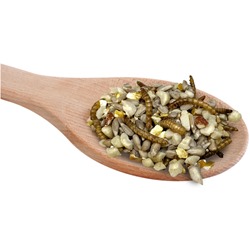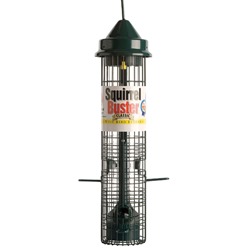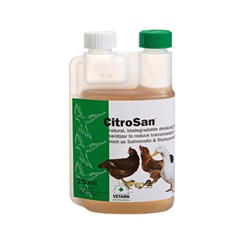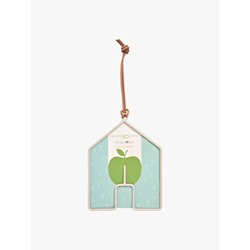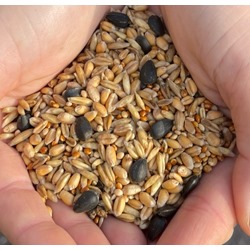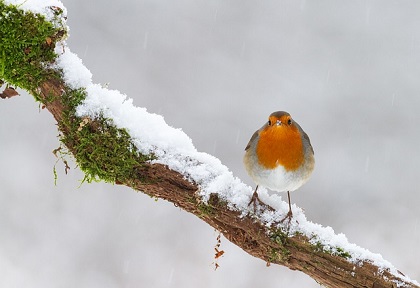
In winter, you should feed birds high-energy seed mixes that will help them to cope with the cold weather. Bird seed with suet is perfect for this time of year because suet is high in both calories and fat.
During the cold winter months, wild birds cannot rely on the natural food sources that are readily available in the summertime. The berries, seeds and fruits have all been eaten, and the plants have started to die back.
The ground also becomes much harder in the winter, making it difficult for birds to dig for worms and grubs.
This is why it's important to feed the birds in winter. Regularly putting out food and water is a great way to support your garden birds at this time of year. If you are winter bird feeding in particularly poor weather, it might even be a good idea to put bird food out twice a day. (Try to avoid letting uneaten food pile up, though - it can become damp, stale and potentially harmful if eaten.)
What to feed birds in winter
When it's cold outside, we recommend filling your feeders with high-energy seed mixes that are packed with calories.
Seed mixes that include suet as an ingredient are especially perfect for winter. Try these warming seed mixes, which are easily digestible and therefore immediately nutritious:
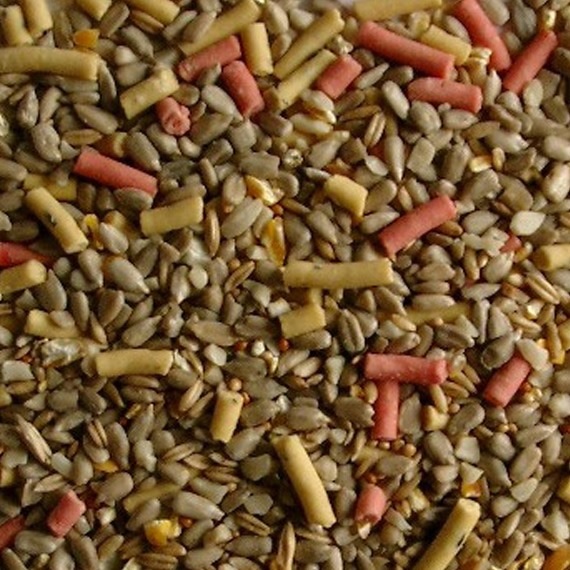
SEED AND SUET COMBO™
Our tremendously popular Seed and Suet Combo™ is just what wild birds need on chilly winter days.
This high-energy feed contains the following ingredients:
- Suet pellets
- Premium sunflower hearts
- Red and white millet
- Naked oats
- Peanut granules
- Plain canary seed
- Cut maize
Because the suet pellets are high in fat, this mix does a lot to help wild birds stay warm and survive the winter. Serve it up in a hanging seed feeder or ground feeder, or on the bird table.
ORDER WITH FREE DELIVERY
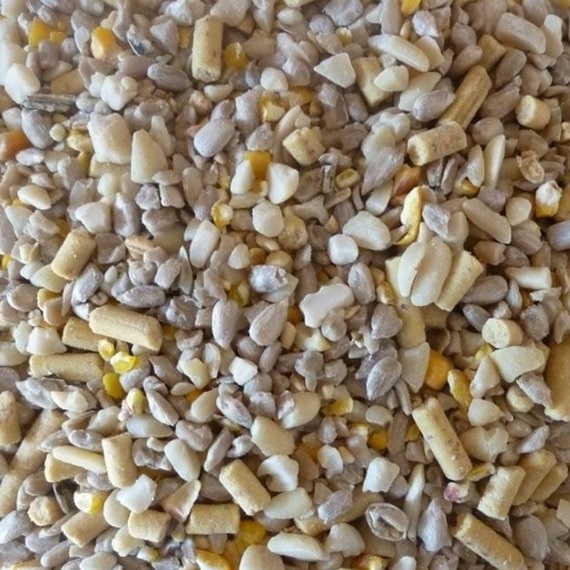
TIDY GARDEN SUET BOOST™
If you don't want to see your lawn covered in seed husks, try our Tidy Garden Suet Boost™ mix. This seasonal spin on our best-selling Tidy Garden Mix™ adds insect-rich suet pellets to help your local birds endure the harsh winter cold. And better still, it won't make a mess in your garden because every part gets eaten!
This seed mix contains the following ingredients:
- Suet pellets with insect
- Premium sunflower hearts
- Peanut granules
- Pinhead oatmeal
- Cut maize
Tidy Garden Suet Boost™ has proven to be a hit with all sorts of different garden birds, but it's particularly popular with robins, tits, finches and sparrows.
ORDER WITH FREE DELIVERY
More tips for feeding birds in winter
When selecting feeds to put out for wild birds in the winter, it's important to use feeds that are high in fat, protein, and calories. Avoid feeding highly filling yet low calorie feeds, as these can fill up wild birds' stomachs and leave them feeling depleted of energy.
We suggest opting for wheat-free bird seed mixes as these are more calorie-dense.
How to feed birds in winter
We always recommend offering a variety of different foods in different types of bird feeders so you can cater to as many bird species as possible. Some birds will happily eat from hanging feeders and bird tables, but others are ground feeders.
Ground feeders have a particularly hard time finding food in the winter because snow and frost can hide the naturally-occurring foods that they'd usually eat!
BUY BIRD FEEDERS
For more information about feeding birds in winter, please don't hesitate to get in touch.
More winter resources:
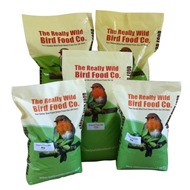
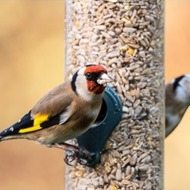 Back
Back Bird Feeders
Bird Feeders  Seed Feeders
Seed Feeders Peanut Feeders
Peanut Feeders Peanut Butter Feeders
Peanut Butter Feeders Suet & Fat Feeders
Suet & Fat Feeders Window Feeders
Window Feeders Hanging Feeders
Hanging Feeders Feeding Stations
Feeding Stations Ground Feeders
Ground Feeders Easy Clean Feeders
Easy Clean Feeders Bird Tables
Bird Tables Seed Trays
Seed Trays Bird Baths & Drinkers
Bird Baths & Drinkers Feeder Accessories
Feeder Accessories Feeder Hygiene
Feeder Hygiene Squirrel Proof Bird Feeders
Squirrel Proof Bird Feeders For the Kids
For the Kids Niger Seed Feeders
Niger Seed Feeders Mealworm Feeders
Mealworm Feeders Bird Food Storage
Bird Food Storage Fat Ball Feeders
Fat Ball Feeders Tube Feeders
Tube Feeders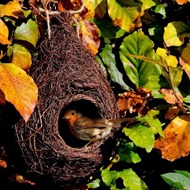



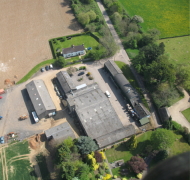 Our Farm
Our Farm Contact Us















